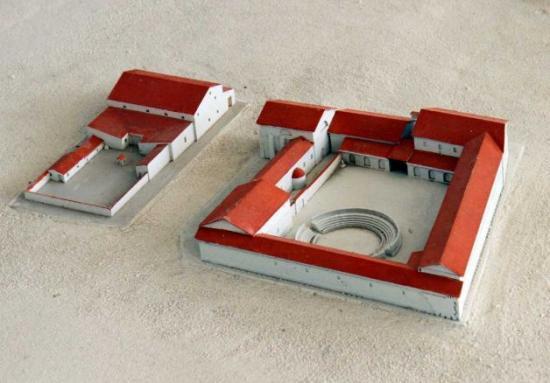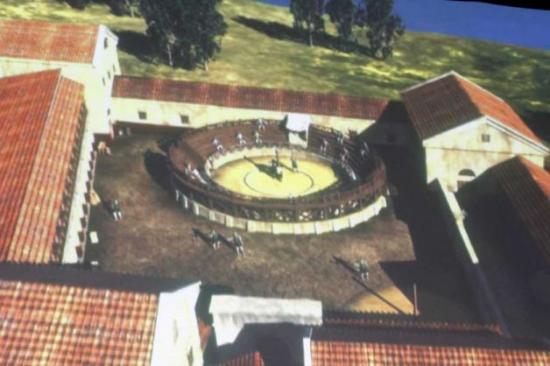
ARC 100 : Introduction à l’Archéologie / Introduction to Archaeology
ARC 101 : Les grandes découvertes archéologiques
ARC 102 : Histoire de l’Archéologie / The history of Archaeology
PART.2
A virtual video presentation of the former Carnuntum gladiator school showed images of the ruins underground shifting into what the complex must have looked like in the third century.
It was definitely a school of hard knocks.
"A gladiator school was a mixture of a barracks and a prison, kind of a high-security facility," said the Roemisch-Germanisches Zentralmuseum, one of the institutes involved in finding and evaluating the discovery. "The fighters were often convicted criminals, prisoners-of-war, and usually slaves."
Still, there were some perks for the men who sweated and bled for what they hoped would at least be a few brief moments of glory before their demise.
At the end of a dusty and bruising day, they could pamper their bodies in baths with hot, cold and lukewarm water. And hearty meals of meat, grains and cereals were plentiful for the men who burned thousands of calories in battle each day for the entertainment of others.
Thick walls surround 11,000 square meters (13,160 sq. yards) of the site, and the school and its adjacent buildings stretch over 2,800 square meters ((3,350 square yards).

Inside, a courtyard was ringed by living quarters and other buildings and contained a round, 19-square meter (23-square yard) training area — a small stadium overlooked by wooden seats and the terrace of the chief trainer.

The complex also contained about 40 tiny sleeping cells for the gladiators; a large bathing area; a training hall with heated floors and assorted administrative buildings. Outside the walls, radar scans show what archeologists believe was a cemetery for those killed during training.
The institute said the training area was where the men's "market value and in end effect their fate" was decided. At the same time, it gave them a small chance for survival, fame, and possibly liberty.
"If they were successful, they had a chance to advance to 'superstar' status — and maybe even achieve freedom," said Carnuntum park head Franz Humer.